Samaaro + Your CRM: Zero Integration Fee for Annual Sign-Ups Until 30 June, 2025
- 00Days
- 00Hrs
- 00Min
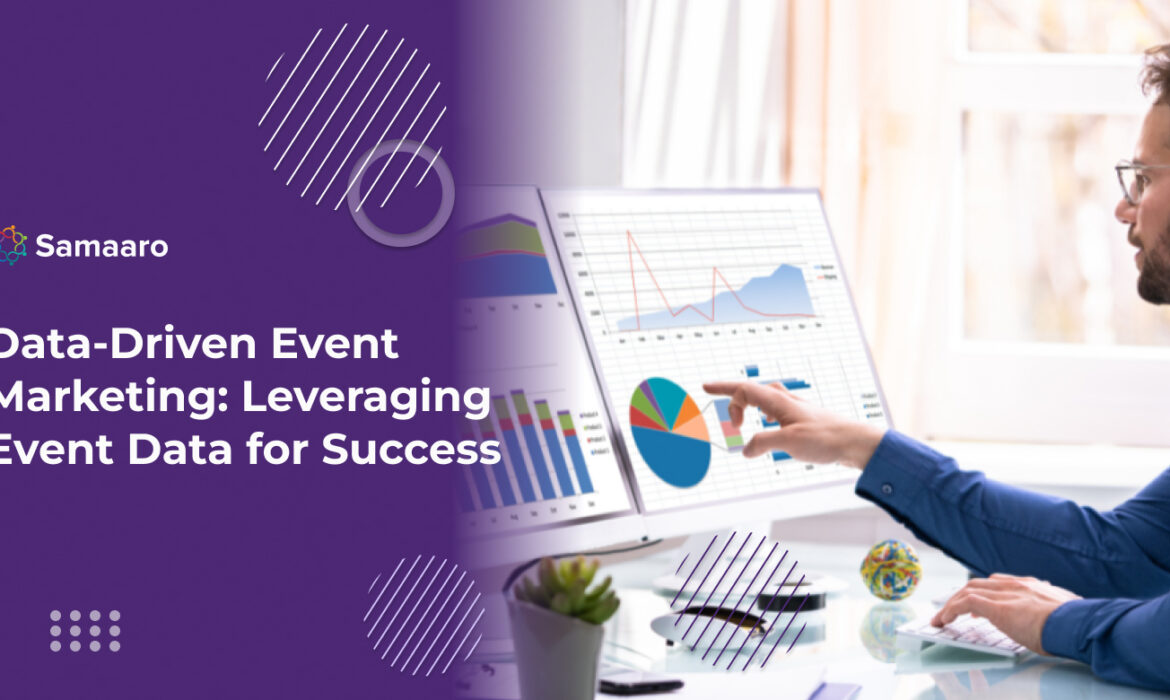
Event marketing has evolved dramatically over the years, moving from intuition-driven decisions to strategies deeply rooted in data. In today’s competitive landscape, where every interaction counts, leveraging event data can transform your campaigns and deliver measurable success. From improving attendee experiences to optimizing lead generation, data empowers marketers to make smarter, more impactful decisions.
Let’s explore how data-driven event marketing can unlock new levels of success and why collecting, analyzing, and using event data should be at the heart of your strategy.
Data is the backbone of modern event marketing. It helps answer critical questions: Who are your attendees? What did they enjoy? What didn’t resonate? More importantly, it provides actionable insights that can shape future events, ensuring they are more engaging and impactful.
When used effectively, data can:
In short, data turns guesswork into certainty, giving marketers the tools they need to continuously refine and elevate their events.
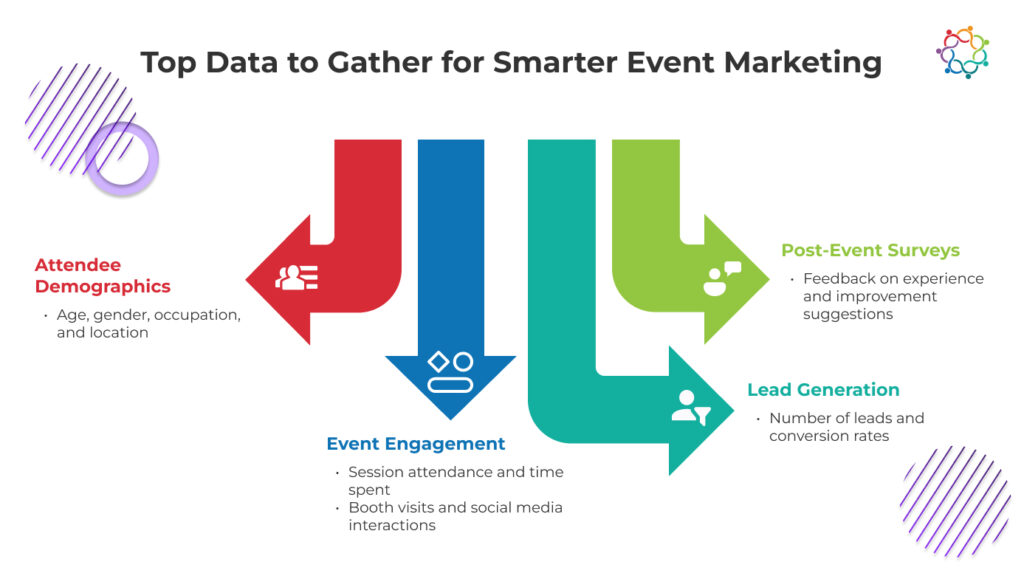
To fully harness the power of data, it’s essential to focus on the right metrics. These key data points will provide a comprehensive understanding of your event’s performance:
Understanding who your attendees are is the foundation of data-driven event marketing. Collect information such as:
This data allows you to tailor content, sessions, and activities to meet the needs of your audience.
Engagement metrics reveal how attendees interacted with your event. Track:
These insights highlight which aspects of your event resonated most with your audience.
One of the primary goals of most events is to generate high-quality leads. Key metrics include:
By understanding the quality of leads generated, you can assess the event’s impact on your business goals.
Direct feedback from attendees is invaluable. Surveys can provide insights into:
Attendee feedback helps refine future events and ensure you’re meeting their expectations.
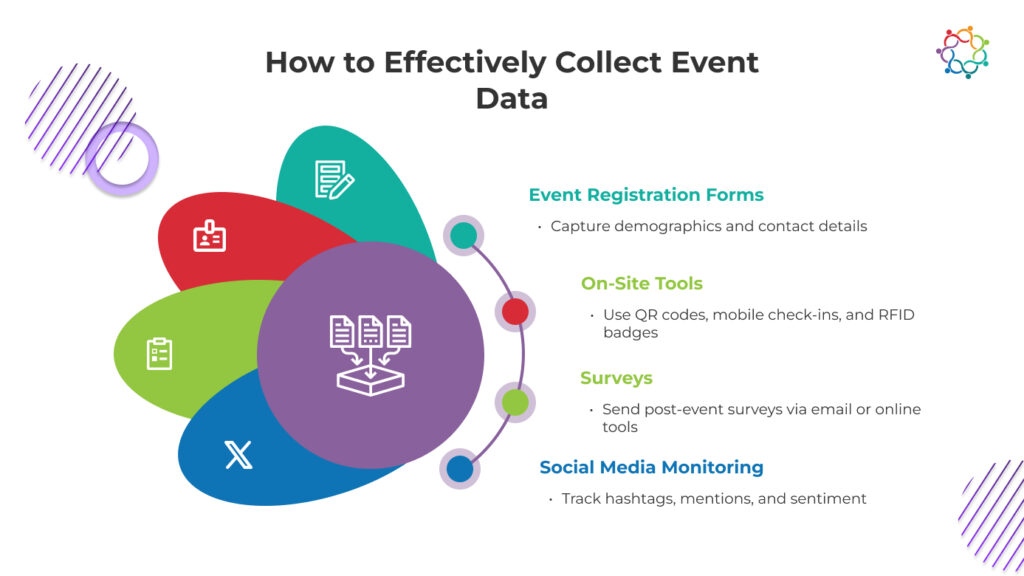
Data collection is as much about the method as it is about the metrics. Using the right tools and techniques ensures accuracy and completeness:
Registration is often the first point of contact with attendees, making it a prime opportunity to gather data. Use forms to collect basic demographic information and preferences. Customize fields to capture details relevant to your event objectives.
Events provide numerous opportunities for on-site data collection, such as:
Send surveys via email or use online tools to collect post-event feedback. Keep surveys concise and focused to maximize response rates.
Track event-related hashtags, brand mentions, and attendee sentiment on social media platforms. This not only provides engagement metrics but also gives insights into how your event was perceived.
Collecting data is only the first step. The real value lies in analyzing it to uncover actionable insights.
Dive into the data to understand your attendees better:
By identifying trends, you can refine your event strategies to align with audience preferences.
Event marketing is an investment, and data helps you measure its return. Calculate:
Understanding ROI demonstrates the event’s value to stakeholders and secures buy-in for future initiatives.
Use data to segment attendees based on their behavior, preferences, and demographics. This allows you to create targeted marketing campaigns and personalize communications, increasing the likelihood of conversions.
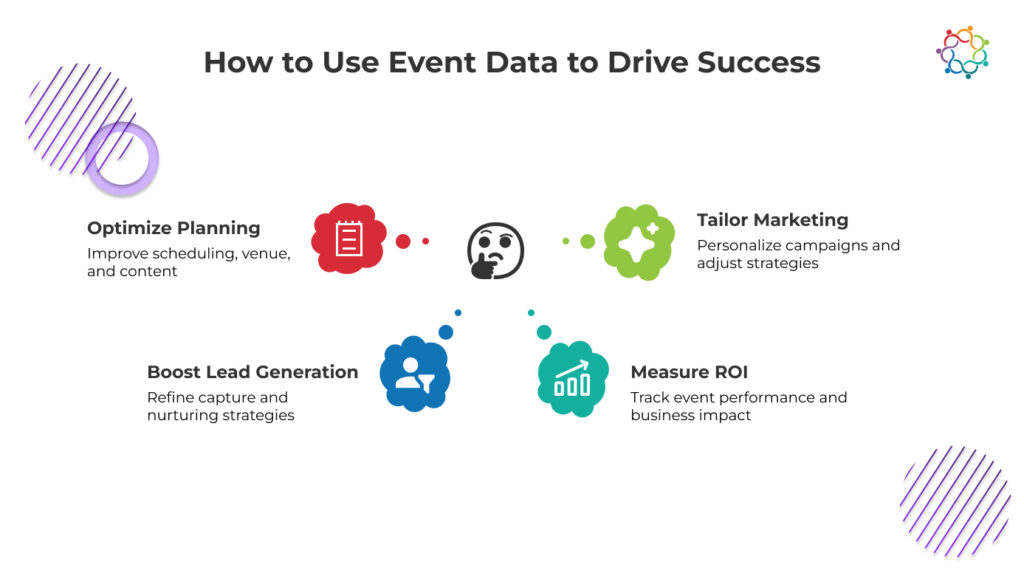
The insights gained from analyzing event data should directly influence your future event planning and marketing strategies:
Use attendee feedback and engagement data to improve logistics, from venue selection to session timing. Tailor your speaker lineup and content based on what resonated most with attendees.
Refine your lead capture strategies based on data insights. For instance, if QR codes outperformed manual forms, prioritize their use. Nurture leads more effectively by segmenting them based on quality and behavior.
Data-driven insights allow you to evaluate the performance of your marketing campaigns. Track which channels drove the most registrations and adjust your budget accordingly.
Data-driven event marketing is no longer optional—it’s essential. By collecting the right data, analyzing it effectively, and using insights to refine your strategies, you can create events that not only meet but exceed expectations.
Samaaro is designed to help you unlock the full potential of data-driven event marketing. With advanced data collection, analysis tools, and a seamless user experience, Samaaro makes it easy to measure success and optimize your efforts.
Ready to take your event marketing to the next level? Book a demo or start your free trial of Samaaro today, and discover how data can transform your events into unforgettable experiences.

Built for modern marketing teams, Samaaro’s AI-powered event-tech platform helps you run events more efficiently, reduce manual work, engage attendees, capture qualified leads and gain real-time visibility into your events’ performance.
Location
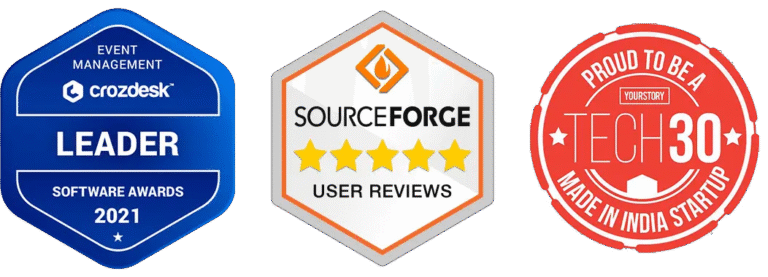
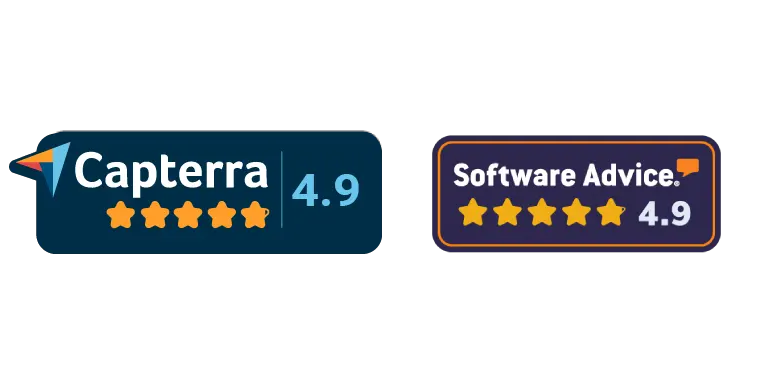
© 2026 — Samaaro. All Rights Reserved.